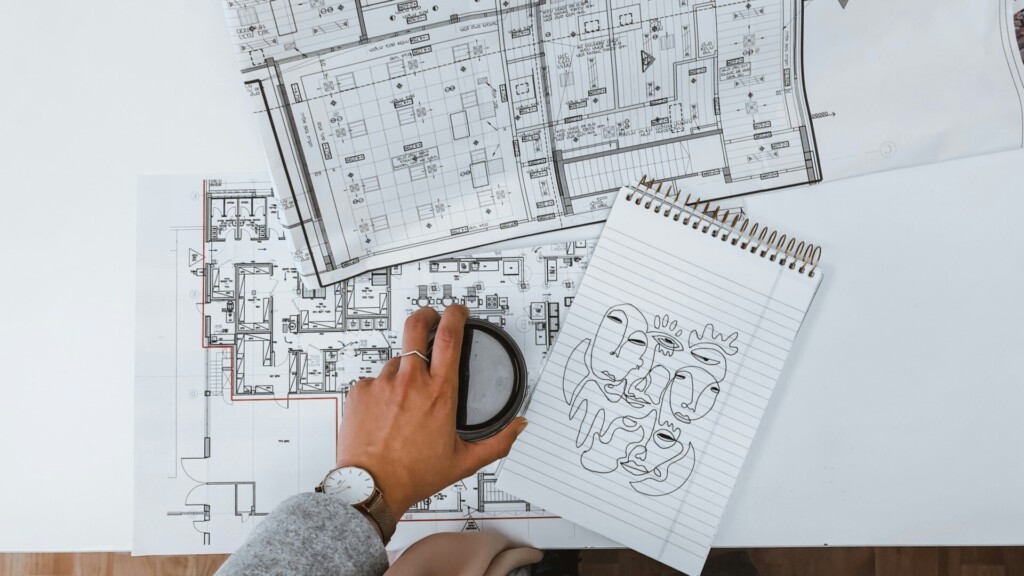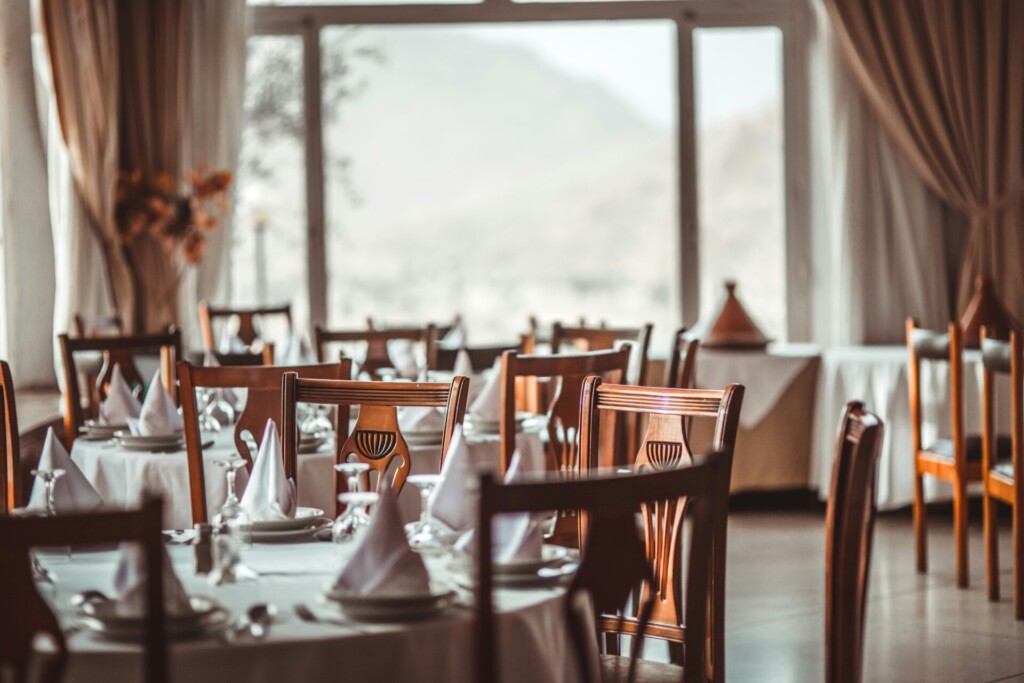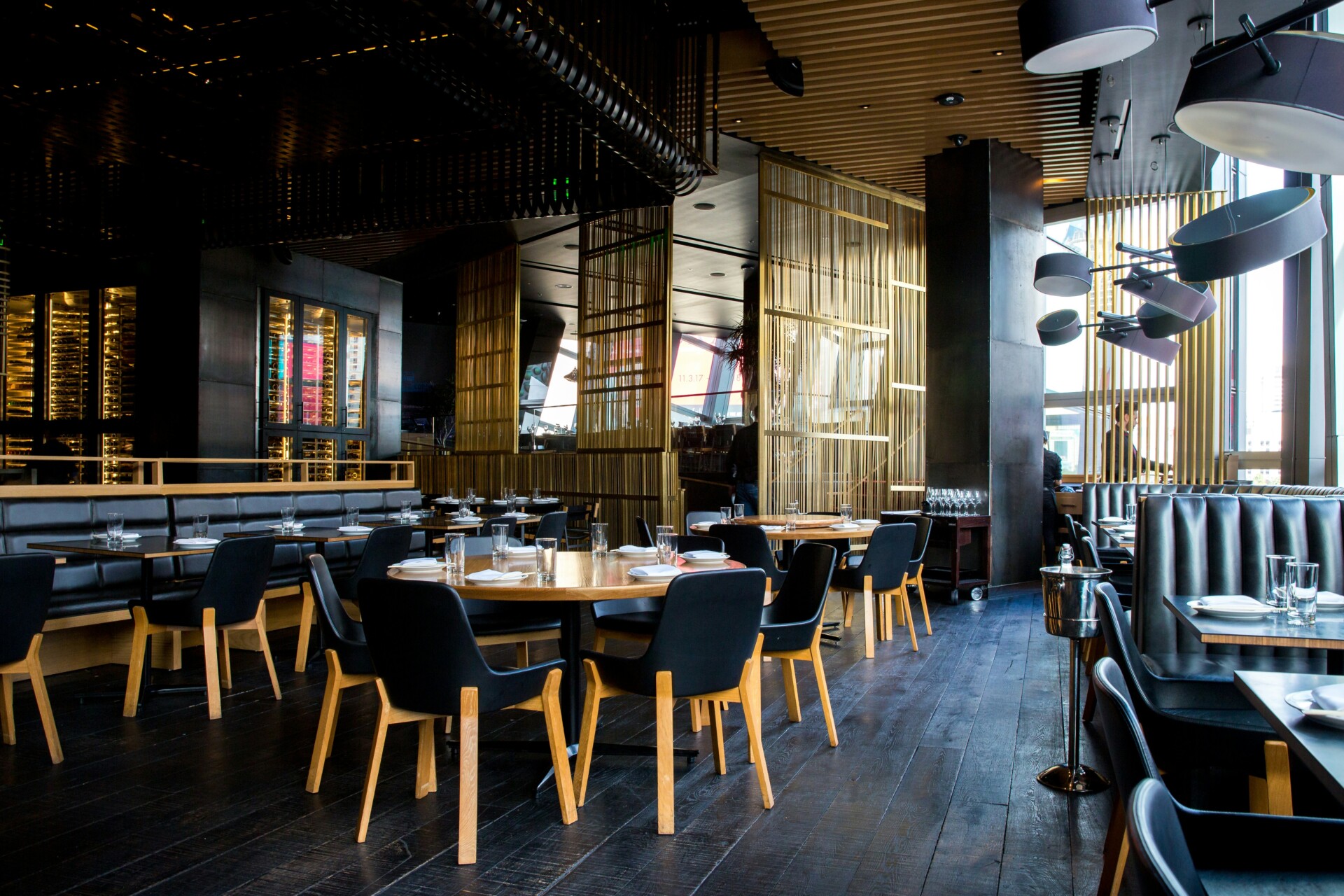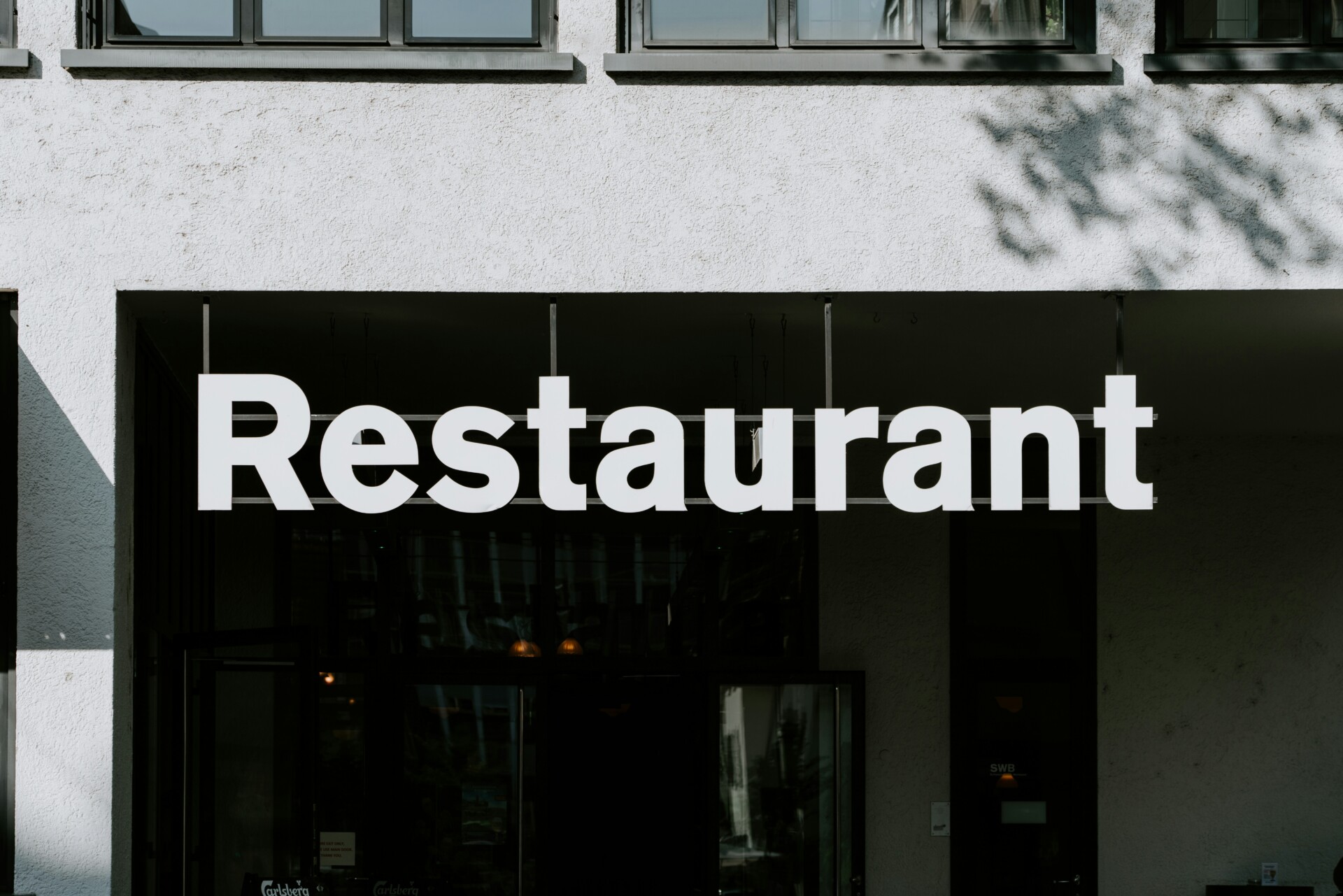When it comes to restaurant construction in Dallas, the competitive landscape demands contractors who deliver both quality and efficiency. At EB3 Construction, we aim to set high standards in the industry. Our experience in crafting restaurant spaces throughout the Dallas-Fort Worth metroplex can contribute to building a solid reputation. We can handle projects ranging from casual dining to quick-service restaurants, showcasing our versatility in meeting diverse client needs.
At EB3 Construction, we strive to make significant contributions to the Dallas restaurant scene. Our approach is built on a commitment to building not just structures but lasting partnerships with restaurant developers and owners. The Dallas market continues to evolve with increasingly complex specifications for restaurant builds, particularly in trending areas where unique architectural elements must harmonize with functional kitchen layouts.
Successful restaurant contractors in Dallas may differentiate themselves through comprehensive turnkey services. We understand that restaurant developers need more than just construction—they typically require partners who can navigate permitting hurdles, coordinate with equipment vendors, and manage the intricate mechanical, electrical, and plumbing systems that restaurant spaces demand. This holistic approach to project management can be valuable in a competitive Dallas market where efficient project timelines can be crucial for business success.
What Services Do Dallas Restaurant Contractors Typically Offer?

At EB3 Construction, we aim to provide a comprehensive range of restaurant construction services tailored to the needs of developers and property owners in Dallas. Our approach can integrate essential elements of the restaurant development process, working to ensure a cohesive and streamlined experience from concept to completion. We understand that successful restaurant construction typically balances operational functionality with customer-focused aesthetics, a principle that guides our project approach.
Design and Planning Expertise
We can start each restaurant project by translating your culinary vision into practical construction blueprints. Our design team aims to collaborate closely with stakeholders to help ensure layout aspects align with brand identity and operational workflow. We focus on creating spaces that not only look distinctive but also function efficiently for specific service models.
Through feasibility studies and detailed estimates, we can outline the scope of work required for your restaurant. This planning phase may identify potential challenges before construction begins, allowing for the development of mitigation strategies that can help prevent delays. This proactive approach can be valuable in competitive dining markets.
Permitting and Code Compliance
Navigating regulatory landscapes requires specialized knowledge. We can manage complex permitting processes, interfacing with city officials to secure necessary approvals for restaurant projects. Familiarity with local ordinances, building codes, and health department requirements can help streamline what might otherwise become a challenging process.
We can coordinate inspections and work to ensure compliance with ADA accessibility standards, fire safety regulations, and sanitation requirements specific to food service establishments. A proactive approach to code compliance may help minimize the risk of post-construction modifications that could affect opening dates and budgets.
| Permit Type | Description |
| Health Permit | Required to ensure compliance with food and safety standards. |
| Building Permit | Ensures compliance with zoning laws, safety codes, fire codes, and accessibility standards. |
| Certificate of Occupancy | Confirms the space is safe and suitable for restaurant operations. |
| Food Establishment Permit | Essential for restaurants, bars, and other food service establishments to operate legally. |
| Sellers Permit | Required for firms that sell physical products subject to sales tax. |
Construction and Build-Out Execution
Our construction teams aim to execute with precision, whether building from the ground up or renovating an existing space. We strive to maintain schedule control through coordination of tradespeople, material deliveries, and inspection timelines. Regular quality assurance checks can help ensure that construction aspects meet standards and specifications.
For fast-casual and quick-service restaurants, we understand that speed to market can be critical. We work to refine construction processes to minimize downtime while maintaining quality, and can implement specialized work schedules when necessary to meet opening deadlines without compromising workmanship.
Interior Design Implementation
We aim to transform architectural plans into inviting dining environments that reflect a restaurant”s unique personality. Our craftspeople can handle custom millwork, specialized flooring installation, and distinctive ceiling treatments to create memorable dining spaces. We pay careful attention to lighting design, recognizing its potential impact on food presentation and overall ambiance.
Front-of-house areas typically receive the same consideration as kitchen spaces, with our team managing aspects from booth installation to bar construction. We work to integrate branding elements throughout the space, aiming to create a cohesive visual experience that reinforces a restaurant”s identity.
Kitchen and Equipment Installation
The heart of any restaurant is its kitchen, and we approach this critical area with specialized expertise. We can coordinate mechanical, electrical, and plumbing systems to support specific equipment needs. Our installation teams handle aspects from ventilation and fire suppression systems to refrigeration and cooking line setup.
We aim to optimize kitchen layouts for operational efficiency, creating workflows that can help minimize staff movement and maximize productivity. Drive-through configurations, pickup windows, and delivery staging areas receive consideration in our designs, addressing convenience options in the restaurant market.
What Makes a Restaurant Contractor in Dallas Stand Out?
When developers and property owners embark on restaurant construction projects in Dallas, they”re not just looking for builders – they”re seeking trusted partners who understand the intricate demands of creating successful dining spaces. In today”s competitive Dallas market, where new establishments constantly vie for customer attention, construction quality can have a significant impact on operational success.
Expertise and Project Experience
The foundation of exceptional restaurant construction begins with industry experience. Restaurant contractors in Dallas can showcase portfolios featuring diverse dining concepts, from fast-casual establishments to fine dining venues. When assessing potential projects, contractors may draw from their experience with kitchen layouts, dining room configurations, and specialized requirements like ventilation systems and grease traps.
Restaurant construction requires specialized knowledge that extends beyond standard commercial building practices. Experienced contractors understand that flow between kitchen and dining areas must be meticulously planned to maximize operational efficiency while creating inviting customer environments. This expertise allows contractors to anticipate and address industry-specific challenges during the construction process.
Recent weather events have highlighted the importance of robust utility systems in restaurant construction. Experienced contractors may integrate considerations for backup capabilities and infrastructure resilience into their planning processes.
Client-Centered Communication and Collaboration
Successful restaurant contractors maintain transparent communication throughout the entire project lifecycle. They recognize that restaurant owners have specific visions for their spaces, and the contractor”s job extends beyond building to include interpreting and executing those visions. Regular project updates, milestone reports, and accessibility for questions create the foundation for strong client relationships.
The construction process can become significantly less stressful when restaurant owners know exactly where their project stands at any given moment. Some contractors implement real-time reporting systems that allow property owners to track progress, review changes, and maintain visibility into their investment without constant site visits or business interruptions.
Construction timelines in restaurant development are critical, as delays can impact opening dates and revenue projections. Respected contractors in Dallas aim to establish realistic schedules and adhere to them rigorously, understanding that each day a restaurant remains unopened may represent lost income for the owner.
Local Regulatory Knowledge and Compliance Expertise
Dallas has specific building codes and health department regulations that apply to food service establishments. Navigating this regulatory landscape requires specialized knowledge that experienced restaurant contractors can develop over numerous projects. Contractors may coordinate permitting processes, health department inspections, and compliance requirements that can otherwise become significant hurdles for restaurant developments.
Since the pandemic, health and safety requirements for restaurant construction have evolved substantially. Capable contractors stay current with these changing regulations, implementing updated ventilation standards, spacing requirements, and materials selections that meet both current codes and anticipated future standards.
Strategic relationships with local permitting offices and inspectors can significantly streamline the approval process. Experienced contractors in the Dallas market may be able to navigate permitting processes more efficiently than those new to restaurant construction or the local area.
Comprehensive Project Management Systems
Restaurant construction involves coordinating numerous specialized trades, from kitchen equipment installers to custom millwork fabricators. Exceptional contractors implement robust management systems that aim to ensure every aspect of the project proceeds according to plan. They may maintain detailed scheduling that accounts for the sequential nature of restaurant builds, where certain elements must be completed before others can begin.
Supply chain management has become increasingly critical in post-pandemic construction. Leading Dallas contractors may maintain strong relationships with suppliers and stay informed about material availability and lead times, particularly for specialized restaurant equipment and fixtures that may require extended ordering periods.
Budget control is another crucial management component. The best contractors provide detailed, transparent cost estimates upfront and implement systems to track expenditures throughout the project. They may utilize value engineering when appropriate, identifying cost-saving alternatives that don”t compromise quality or functionality.
Technical Expertise in Restaurant-Specific Systems
Restaurants require specialized mechanical, electrical, and plumbing systems that differ significantly from standard commercial construction. Fire suppression systems for cooking equipment, properly sized grease traps, appropriate ventilation for kitchen areas, and adequate electrical capacity for commercial appliances all demand specific technical knowledge.
High-performance kitchen flooring that withstands heavy use while meeting safety standards for commercial food preparation areas requires particular attention during installation. Experienced contractors ensure these specialized elements meet both functional requirements and health department regulations.
Acoustical management presents another technical challenge in restaurant construction. Creating spaces where conversation remains comfortable despite kitchen noise and dining room activity requires thoughtful design implementation during the construction phase, including appropriate insulation, surface treatments, and spatial organization.
| Factor | Description |
|---|---|
| Industry-Specific Knowledge | Understanding the unique needs of the food service industry, including compliance with health and safety regulations. |
| Track Record | A proven history of successful restaurant projects, showcasing experience and expertise in restaurant construction. |
| Project Management Skills | Ability to effectively coordinate and manage timelines, budgeting, and unexpected construction issues. |
| Sustainability Focus | Use of eco-friendly materials and energy-efficient designs in the construction process. |
| Client Communication | Maintaining transparent and regular updates with restaurant developers throughout the construction process. |
| Local Expertise | Familiarity with area-specific regulations and trends, allowing for efficiency and compliance in local contexts. |
| Flexibility | Adaptability to changing client preferences, health guidelines, and construction challenges. |
Building restaurants in Dallas that stand the test of time requires balancing aesthetic appeal with practical functionality. Experienced contractors focus on creating spaces that not only look impressive on opening night but also continue functioning efficiently throughout years of operation. This long-term perspective can inform construction decisions, material selections, and quality standards throughout the project.
How Do Restaurant Construction Projects in Dallas Typically Progress?

Restaurant construction projects typically follow a predictable progression when managed properly. A systematic approach can guide restaurant projects from initial concept to successful opening. Understanding this journey helps developers and property owners anticipate what comes next and prepare for each phase accordingly.
Initial Consultation and Pre-Construction Planning
Restaurant projects often begin with comprehensive consultations to understand the vision, budget parameters, and timeline requirements. This critical first step may include site assessment, feasibility studies, and preliminary budgeting. During this phase, potential challenges unique to restaurant construction can be identified, such as utility capacities, structural considerations, and site-specific constraints.
Pre-construction planning also typically involves assembling a team of architects, engineers, and specialized restaurant consultants. For complex restaurant builds, commercial kitchen designers and equipment specialists may be brought in early to ensure the operational flow aligns with the architectural vision. This collaborative approach can help prevent costly redesigns later in the process.
Design Development and Documentation
Once project parameters are established, architects typically develop detailed plans that translate the restaurant concept into construction documents. This phase often unfolds in stages: schematic design establishes the basic layout, design development refines the details, and construction documentation provides the technical specifications needed for permitting and building.
Restaurant designs must account for specific local considerations, from energy code compliance to grease trap requirements. Collaboration with designers can help incorporate these elements while maintaining the aesthetic integrity of the concept. Material selection, equipment specifications, and interior finishing details are typically finalized during this phase, creating a comprehensive roadmap for construction.
Permitting and Regulatory Navigation
Restaurant construction requires navigating multiple regulatory channels, and this phase can significantly impact how smoothly the rest of the project progresses. The process usually involves managing the submission and approval process for building permits, health department reviews, fire safety inspections, and zoning compliance.
The permitting landscape can be challenging, with requirements varying by neighborhood and building type. For restaurants, particular attention must typically be paid to ventilation systems, grease management, accessibility standards, and parking requirements – all areas that may receive intense scrutiny from inspectors.
Construction Execution
When permits are secured, active construction can begin. This phase typically follows a strategic sequence refined through numerous restaurant builds. Construction often begins with demolition or site preparation, followed by structural modifications if needed. Rough-in work for plumbing, electrical, and mechanical systems comes next, with particular attention to the specialized requirements of commercial kitchens.
As construction progresses, kitchen equipment, ventilation systems, and fire suppression infrastructure are typically installed according to both code requirements and operational specifications. Front-of-house construction often follows a parallel track, with framing, drywall, and finishing work transforming the space into the designed dining environment. Throughout this process, project managers aim to maintain quality control and adherence to both timeline and budget targets.
Project Management and Quality Control
Successful restaurant construction demands rigorous project management. Superintendents typically coordinate subcontractor schedules, material deliveries, and inspection timelines to maintain momentum. Weekly progress meetings can keep all stakeholders informed about developments, potential challenges, and upcoming decision points.
Quality control inspections often occur throughout construction, not just at project completion. Regular reviews of work quality, adherence to design specifications, and code compliance are common. This proactive approach aims to identify and address issues before they impact subsequent work, potentially preventing costly rework and schedule delays.
Final Inspections and Project Turnover
As construction nears completion, a series of inspections are typically required before a restaurant can open. These may include building code inspections, fire safety reviews, health department approvals, and final certificate of occupancy verification. Thorough preparation for these inspections can help avoid last-minute surprises that might delay opening dates.
The final phase usually includes systems testing, owner training, and project documentation. This stage ensures that all building systems function as designed, that the team understands how to operate and maintain these systems, and that complete documentation of the construction process is provided. A comprehensive handover can ensure a smooth transition from construction to operations, allowing focus on launching the restaurant rather than resolving construction issues.
By understanding this progression and working with an experienced contractor familiar with restaurant construction, property owners and developers can navigate the complex process with confidence, to help achieve a successful project that aligns with operational needs and design aspirations.
What Should Restaurant Owners Look for When Hiring a Commercial Contractor in Dallas?
Embarking on a restaurant construction project requires selecting the right commercial contractor to ensure your development stays on schedule and within budget. As property owners and developers in the Dallas market, it”s crucial to find a general contractor with specialized expertise in restaurant projects. The unique challenges and opportunities in Dallas necessitate careful contractor selection.
Restaurant-Specific Construction Experience
Prioritizing industry-specific expertise for restaurant projects is important. Unlike residential or office construction, restaurants require specialized mechanical systems, kitchen layouts, and ventilation needs, demanding a contractor experienced in these areas.
When interviewing potential contractors, inquire about their experience with restaurant projects. Current labor and supply chain issues can impact construction, so it”s beneficial to work with teams familiar with handling these challenges in restaurant contexts.
Consider requesting a tour of recently completed restaurant projects. This firsthand viewing can offer valuable insight into workmanship quality and attention to detail that photos alone can”t provide. A confident contractor may be willing to facilitate these site visits.
Proper Licensing, Insurance, and Qualifications
When vetting potential contractors, ensure they have:
- Valid Texas commercial contractor licensing
- General liability insurance with adequate coverage limits
- Workers” compensation insurance for all employees
- Professional liability insurance for design services, if applicable
- Performance bonds for larger projects
Beyond these basic requirements, consider selecting contractors knowledgeable about recent code updates affecting Dallas restaurant construction. Recent changes to codes for commercial kitchens can impact ventilation and fire suppression systems.
Portfolio Depth and Quality
A contractor”s portfolio reveals more than just completed projects. Restaurant owners should critically examine portfolios, looking beyond aesthetics to assess construction versatility and problem-solving abilities.
During portfolio reviews, restaurant owners may benefit from asking specific questions about challenges faced during past projects and how they were resolved. Construction obstacles can arise, but an experienced contractor will have strategies for addressing common difficulties in restaurant construction.
Pay close attention to how contractors manage kitchen installations, dining room acoustics, and mechanical systems integration in their portfolio examples. These factors can greatly impact operational efficiency and guest experience in restaurant spaces.
Strong Client References
Successful restaurant contractors often foster lasting relationships with clients through transparent communication and service. When evaluating potential contractors, consider contacting references from similar restaurant projects.
Ask references specific questions about timeline adherence, budget management, and handling of change orders. Recent supply chain disruptions have impacted many construction timelines, making a contractor”s adaptability important.
Restaurant owners may also inquire about a contractor”s subcontractor relationships. Strong subcontractor networks can indicate industry respect and may translate to better pricing and scheduling reliability for your project.
Local Code Knowledge and Permitting Expertise
The restaurant construction permitting process in Dallas can be complex and time-consuming. Contractors with strong relationships with local building departments may understand the nuances of securing restaurant-specific approvals.
When interviewing contractors, ask about their familiarity with Dallas health department requirements and their process for obtaining permits. Experienced restaurant contractors may outline a strategy for health department approvals, including preliminary meetings and inspections throughout construction.
Consider contractors who maintain relationships with Dallas building officials and can demonstrate how they”ve managed the permitting process for previous restaurant clients. This expertise can help reduce project delays and frustrations.
Effective Communication and Project Management
Clear communication is essential for successful construction projects. When selecting a contractor, evaluate their communication protocols and project management systems. Request examples of progress reports and ask how they handle client questions and concerns during construction.
Some restaurant contractors utilize project management software to provide updates on construction progress, budget tracking, and schedule adherence. This technology can help ensure transparency and keep stakeholders informed.
Additionally, inquire about their approach to coordination meetings and site visits. Regular, well-documented on-site meetings can indicate a contractor”s commitment to communication and accountability.
Budget Transparency and Value Engineering
With the changes in construction costs, budget management is critical. Look for contractors who provide detailed, transparent estimates and can identify value engineering opportunities while maintaining quality.
When reviewing contractor proposals, look beyond the bottom line to understand cost structures. Comprehensive proposals, including detailed breakdowns of materials, labor, permits, and contingencies, demonstrate a thorough understanding of your project”s needs.
Ask potential contractors about their approach to value engineering and how they help clients maximize their construction budget. Experienced restaurant contractors may suggest alternative materials or methods that maintain quality while potentially reducing costs, particularly for kitchen equipment installations and specialized finishes.
Conclusion: Finding the Right Commercial Restaurant Contractor in Dallas

Selecting the right commercial restaurant contractor in Dallas is crucial for your project”s success. The partnership between restaurant owners and their contractors can shape the entire construction journey. Successful restaurant projects are often built on a foundation of clear communication, a shared vision, and construction expertise tailored to specific needs.
Commercial restaurant contractors typically provide comprehensive services tailored to restaurant development—from initial design consultation through navigating permits to the final construction phases. Detailed planning in the early stages can help prevent costly adjustments later. When evaluating potential contractors for your restaurant project, consider looking for teams with experience in similar establishments, transparent pricing structures, and a portfolio of completed projects that reflect your culinary vision.
As you begin your search for the right construction partner, consider investing time in thorough research and in-person interviews with multiple contractors. You may want to ask questions about their experience with health department compliance, kitchen equipment installation, and ventilation systems—all important components in restaurant construction. An experienced contractor will aim to understand your business objectives, respect your budget constraints, and work collaboratively to bring your restaurant concept to life while meeting regulatory requirements.
Ready to turn your restaurant concept into reality? Contact EB3 Construction to discuss your commercial restaurant project needs.




